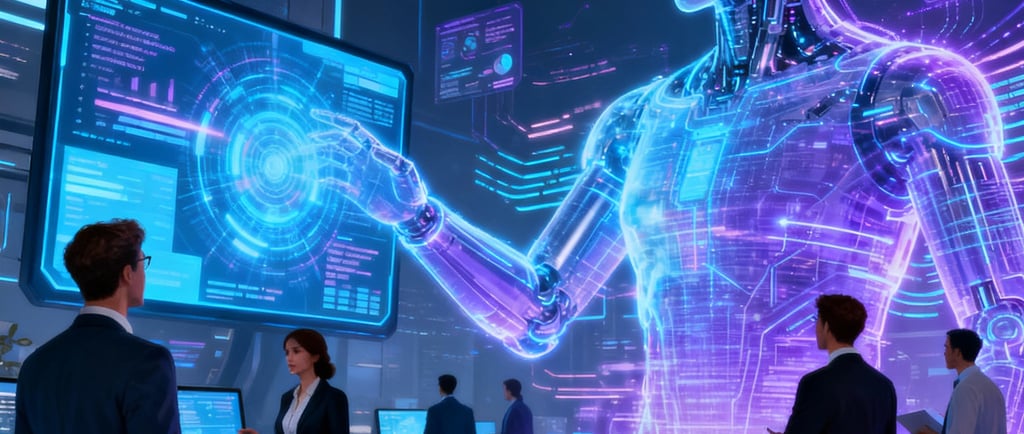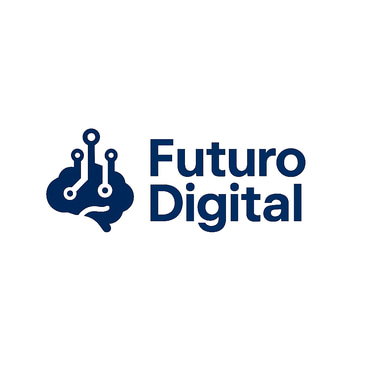AI Transforming Everyday Life: Real Benefits
Discover how artificial intelligence is transforming everyday life with significant benefits for businesses and users. Explore the impact of AI and its advantages in various sectors.
10/5/20253 min read


Artificial Intelligence (AI) is no longer a technology of the future — it has become a constant presence in our everyday life. From virtual assistants that answer questions to systems that help diagnose diseases, AI is already part of the way we live, work and make decisions. This article explains how artificial intelligence is transforming people’s and companies’ daily routines, often in a silent but profound way.
What is Artificial Intelligence
Simply put, Artificial Intelligence is a machine’s ability to learn, reason, and make decisions in a way that resembles human thinking. It uses large amounts of data and complex algorithms to recognise patterns and generate intelligent responses. Today, AI is no longer limited to research labs — it is an accessible tool, present in apps, devices and online services we use every day.
AI in Daily Life
The presence of AI in daily life is so natural that it often goes unnoticed. When we use a smartphone to translate a sentence, look for a faster route, or adjust screen brightness automatically, we are interacting with AI systems.
In e-commerce, recommendation algorithms use artificial intelligence to suggest products based on each user’s preferences. Streaming platforms like Netflix or Spotify use AI to create personalised playlists of films or songs, constantly learning from each person’s habits.
In banking and financial services, AI helps detect fraud and supports customer service through chatbots. In the healthcare sector, it plays an increasingly important role in interpreting medical exams, preventing diseases and developing personalised medicines.
How AI Is Changing Work
The digital transformation of companies is deeply linked to AI. Many repetitive tasks previously performed by humans are now carried out by intelligent systems. This allows people to focus on more creative and strategic activities.
AI-powered tools help analyse data, predict consumer trends, and optimise internal processes. In industry, smart robots increase productivity and reduce errors. In digital marketing, algorithms adjust campaigns in real time, maximising impact and return on investment.
However, automation also raises questions about the future of employment. While some roles may disappear, new opportunities emerge in technology — such as programming, data analysis, and AI development. As a result, reskilling has become essential to keep up with change.
Education and Intelligent Learning
AI is also transforming how we learn. Online learning platforms use algorithms to adapt content to each student’s pace, making learning more personalised and effective. Tools such as automatic translation, virtual tutors, and smart correction systems help students and teachers interact more efficiently.
In schools and universities, AI-based systems are used to assess student progress, identify difficulties and suggest more suitable teaching methods. Digital learning does not replace teachers, but expands their reach, enabling more personalised support.
AI at Home and in Mobility
At home, voice assistants such as Alexa, Siri or Google Assistant have become part of daily routines. They can control lights, adjust temperature or play music with a simple command. In many cases, they learn from user preferences and adapt to habits, making smart homes more comfortable and efficient.
In the transportation sector, AI powers apps that calculate routes, analyse traffic, and suggest alternatives. Autonomous vehicles, still under development, represent a clear example of how AI may revolutionise mobility, making roads safer and reducing environmental impact.
Ethical and Social Challenges
With so many advancements come important ethical challenges. Issues such as data privacy, responsible use of information and the risk of algorithmic bias are central to the debate on the future of AI. It is essential that technology is developed with transparency and fairness, respecting individual rights.
Another important point is technological dependence. As we rely more on intelligent systems, it becomes crucial to preserve critical thinking and human decision-making. AI should be seen as a support tool, not a replacement for human judgement and responsibility.
The Future of Artificial Intelligence in Daily Life
In the coming years, AI will become even more present in our lives. The arrival of more advanced conversational models, such as Google Gemini or ChatGPT 5, will allow more natural and personalised interactions between humans and machines. Artificial intelligence will be able to understand emotions, adapt language to context, and even anticipate needs before the user expresses them.
AI is expected to continue improving efficiency and quality of life, from energy management to preventive medicine. However, the major challenge will be balancing technological innovation with ethical responsibility.
The real transformation lies not only in the machines, but in how we use them to build a more intelligent, inclusive, and human future.
Conclusion
Artificial Intelligence is redefining daily routines, work, and social interaction. Its impact is visible across almost every sector and will continue to grow in the coming years. It is our responsibility to ensure that this technological evolution is used in a responsible, transparent, and ethical way, for everyone’s benefit.
Ultimately, AI is a powerful ally — but the future will always depend on human creativity, empathy and good judgement.
Innovation
Discover how AI transforms everyday life
Technology
Blog
suportevirtual@futurodigital.blog
© 2025. All rights reserved.
Other Pages
